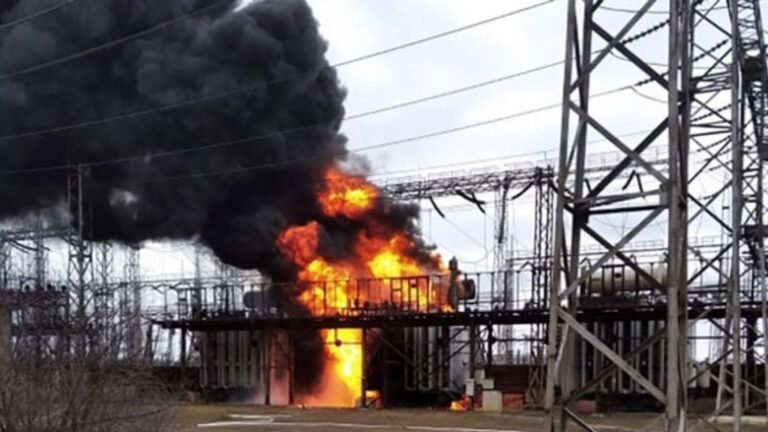
Nations today are faced with the Energy Trilemma; how to achieve energy security, energy equity and environmental sustainability – at the same time. And transitioning towards renewable forms of energy is essential to achieve human security worldwide, according to Marie Stjernquist Desatnik at Naturskyddsföreningen (the Swedish Society for Nature Conservation, SSNC). Image: A military attack on energy infrastructure. Photo by: Ecoaction.
Av: Marie Stjernquist Desatnik
The world’s addiction to fossil fuels is the main contributor to the climate crisis, and it impacts peace and security worldwide. This was clearly demonstrated in 2022 by Russia’s invasion of Stjernquist Desatnik, Senior Climate Policy Advisor at Naturskyddsföreningen (the Swedish Society for Nature Conservation, SSNC). She argues that transitioning towards renewable forms of energy is essential to
17 januari, 2023, English, Gästanalys, Guest piece, Magazine
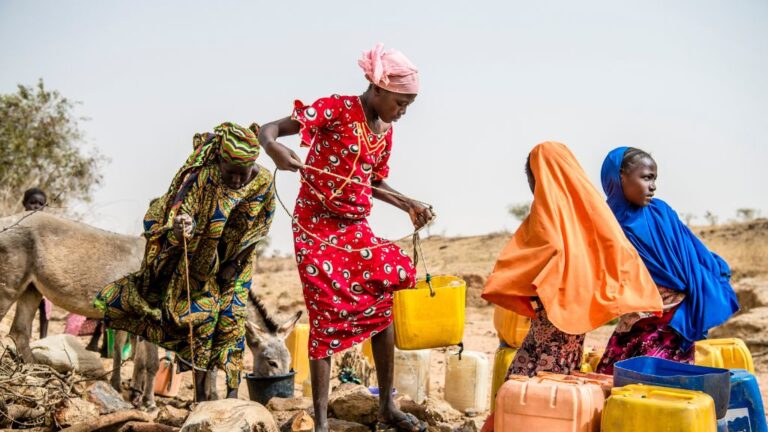
Water related challenges constitute some of the biggest challenges the world is facing today, and the global water crisis is not gender neutral. But water diplomacy, defined as cooperation over the management and safeguarding of shared water resources, has the potential to contribute to equitable, peaceful and sustainable solution, states LM International in a debate article. Photo from Niamey, Niger. Photographer: Torleif Svensson.
Av: Florien van Weerelt och Isabella Olsson
Access to safe water and sanitation has been recognised as both a human right under international law and an important objective for the international community through its inclusion in the United Nations (UN) Sustainable Development Goals (SDGs). Equitable access to water contributes to the achievement of key objectives, including gender equality, climate resilience, and peace and security.
1 december, 2022, Debatt, English
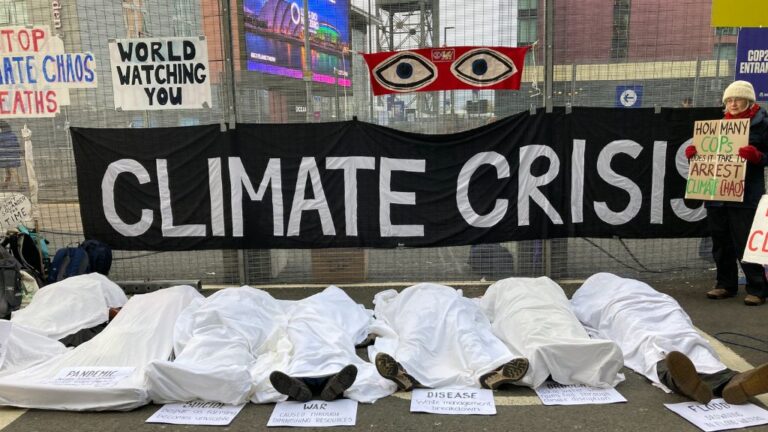
Future COPs, as well as climate conferences and UN conferences in general, must address the gap between policy and people on the ground, according to Melanie Ridout, who works as Global Sustainable Innovation Manager and Climate Resilience Lead at Läkarmissionen. Photo of Doctors for Extinction Rebellion during COP26 protests. Photo by: Melanie Ridout.
Av: Melanie Rideout
Climate change is the inevitable culmination of the bad decisions we have made as a collective community. To address these challenges, we need to fundamentally change the architecture of our current system. That starts with ensuring meaningful participation, from the bottom-up, writes Melanie Rideout, Global Sustainable Innovation Manager and Climate Resilience Lead at Läkarmissionen.
3 november, 2022, Debatt, English
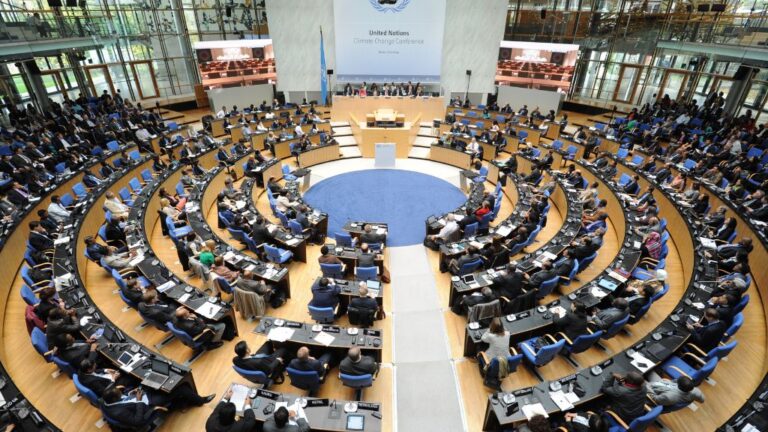
Every conference on climate change creates a great deal of expectation and disappointment.
But why do conferences on climate change fail? Daniel H. B. Gamez, master's student in International Relations at Linköping University, reflects on the subject in a guest analysis. Photo: UNclimatechange. Source: Flickr.
Av: Daniel H.B. Gamez
Notwithstanding the efforts by many to raise awareness on climate change, for example by multilateral conferences, the fate of reducing global warming depends on the economic and political distribution of power on a global scale.
17 oktober, 2022, English, Gästanalys, Magazine, Opinion
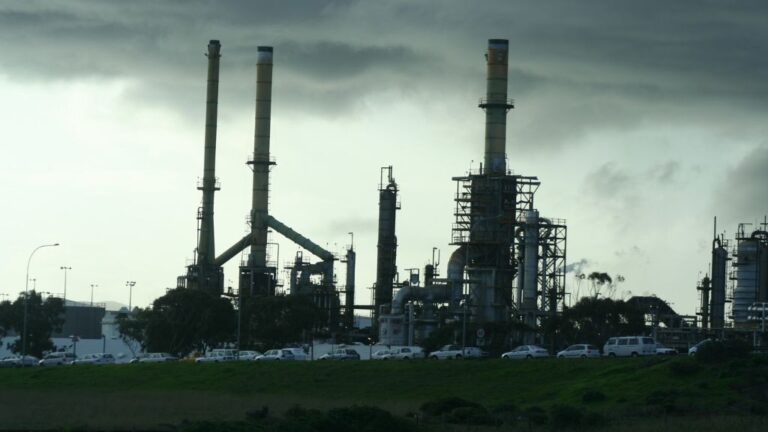
Oil and military companies are two key actors both contributing to global warming. Together they have the scale of resources necessary for systemic transformation, writes Jonathan Michael Feldman, who works in the Department of Economic History and International Relations at Stockholm University. Foto: Pxhere.
Av: Jonathan Michael Feldman
if oil and military firms causing problems are transformed into platforms for civilian, sustainable development through conversion and proactive investment campaigns aimed at universities and local investment actors, writes Jonathan Michael Feldman, who works in the Department of Economic History and International Relations at Stockholm University.
30 juni, 2022, English, Gästanalys
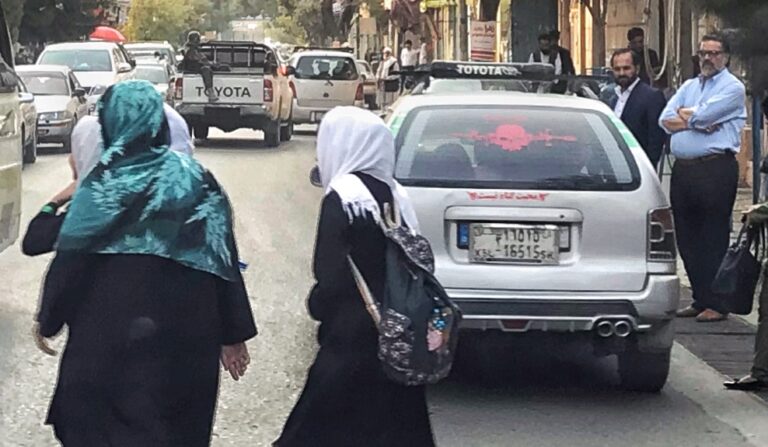
Since the Taliban takeover of Afghanistan in August 2021, they have – among other restrictions for women – restricted girls' possibility to go to school. Photo: Kajsa Waaghals.
Av: Arzo Bahar
Eight months after the Taliban takeover of Afghanistan, hope is paused as new policies restricting women are confirmed. These include an ongoing ban of secondary school for girls and increasingly stringent male escort requirements. Arzo Bahar, the president of the Female Staff Association of the Swedish Committee for Afghanistan, describes her experience as a working woman and mother, and the fears she has for her daughters.
26 april, 2022, English, Gästkrönika, Guest piece, Magazine

Policy-making at the European level is starting to include voices of young people in decision-making processes, according to Johanna Caminati Engström, Policy- och Advocacy Officer for Plan International EU Office and past writer for FUF.
Av: Johanna Caminati Engström
Several EU institutions are currently working to improve the inclusion and representation of youth in the European Union and especially in its external action agenda, says Johanna Caminati Engström, policy and advocacy officer at Plan International’s EU office. She highlights the importance of EU’s newly implemented work such as the first-ever Youth Action Plan and reflects on its long term impacts.
31 mars, 2022, English, Guest piece, Magazine
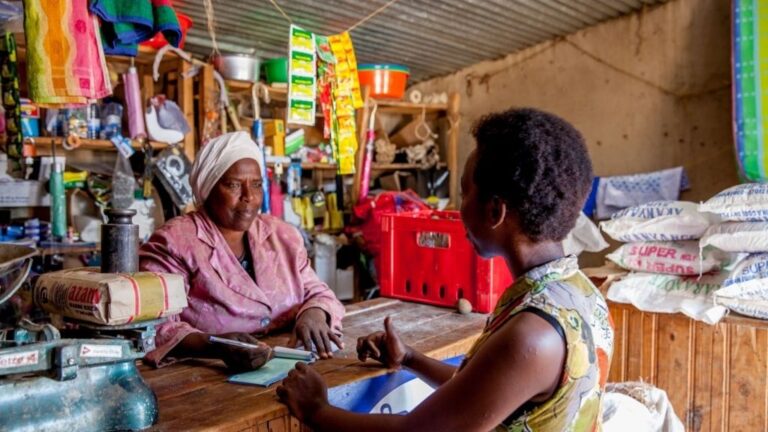
58 year old seller Betty Mukarame is one of many women taking part in the organization Access to Finance Rwanda’s (AFR) initiatives. Photo: FinScope 2016.
Av: Hibo Yusuf Ahmed
The concept of an inclusive economy has proved to make significant change in Rwanda, lifting millions out of poverty, according to the UN. The organization Access to Finance Rwanda (AFR), which is partly funded by the Swedish government, identifies market gaps and design interventions to close those gaps – making the market accessible to the most vulnerable in society.
– Poor people stay poor because they are excluded from different markets, says Jean Bosco Iyacu, CEO of AFR.
30 december, 2021, English, Interview, Magazine

Many of the people living in fragile or vulnerable states are at risk of man-made and natural crises, which can derail efforts made to reach the Sustainable Development Goals. Photo: Eddie Wong/Flickr.
Av: Aarne Hakomäki och Tanya
As the world is still struggling to contain the Covid-19 pandemic, complex man-made and natural crises are evolving and causing major setbacks in the living standards and safety of countless people globally. While the United Nations Sustainable Development Goals (SDG’s) give a promise of leaving no one behind, a study by the International Rescue Committee […]
Läs mer »
20 december, 2021, Editorial, English, Magazine

Almost two years after the COVID-19 outbreak, the pandemic is far from over, and its repercussions might last for months and years to come. Photo: Transformer18/Flickr.
Av: Ivette Nogués
After surpassing the threshold of 50% of the world population who have received at least one shot of a COVID-19 vaccine, some may feel like we are finally putting the pandemic behind us. However, many experts warn that the crisis is far from over – and that its long-term consequences are still very difficult to estimate.
19 december, 2021, Chronicle, English, Magazine










